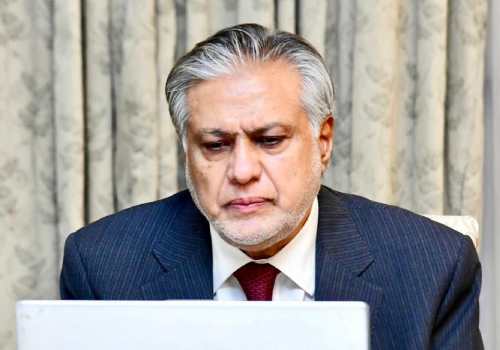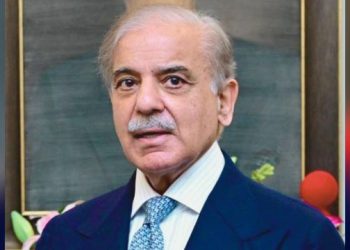ISLAMABAD: In a televised message on Saturday, Pakistan’s Finance Minister Ishaq Dar reassured the nation that the country’s foreign exchange reserves would not experience a major reduction.
This statement came after China promptly refinanced $1.3 billion in loans repaid earlier in the week. Dar further announced that an additional $300 million debt repayment to China had been made, expressing hope that Beijing would refinance the amount within four to five days.
Despite having only $4 billion in reserves, Pakistan managed to repay $1.3 billion of Chinese loans over the past five days, thanks to the finance minister’s strategic approach. By making the repayments ahead of schedule, Dar successfully preserved the reserves at their current thin level.
The concerns regarding Pakistan’s ability to service the $3.6 billion debt in June, given the limited reserves of $4 billion, have been mitigated for now. However, the estimated external debt repayments for the next fiscal year are expected to reach approximately $25 billion, posing significant challenges.
Although Pakistan has budgeted to receive $3 billion from Saudi Arabia and the United Arab Emirates in new lending during the next fiscal year, no fresh bilateral loans have been acquired yet. Additionally, the country has allocated $1.5 billion worth of Eurobonds, but their issuance is contingent on receiving a satisfactory health of economy certificate from the International Monetary Fund (IMF). A stable global interest rate environment and improved credit ratings are vital prerequisites for Pakistan to venture into the world’s capital markets.
Pakistan’s central bank recently announced the receipt of a $1 billion loan from China, which bolstered the country’s foreign exchange reserves to over $4 billion. This loan was repaid ahead of the June 29 due date as part of a debt management strategy aimed at securing refinancing well before the end of the fiscal year. Notably, China waived the charges on premature debt repayments.
Pakistan demonstrated its commitment to debt repayment by paying off $1 billion to the China Development Bank (CDB) on Monday, followed by another $300 million debt repayment to the Bank of China on Friday. The finance minister also mentioned the renewal of the $1 billion State Administration of Foreign Exchange loan.
However, the government’s efforts to avoid default encountered a setback when the Pakistan Peoples Party (PPP) linked its vote for the new budget to additional funds. The PPP’s demand came at a time when the IMF had already urged Pakistan to review its budget and align it with a prudent fiscal policy.
Bilawal Bhutto-Zardari, chairman of the PPP and also the foreign minister, expressed dissatisfaction with the budget, highlighting the party’s concern over the allocation of funds for last year’s flood victims. Bilawal urged the prime minister to prioritize the needs of the flood victims and hold accountable those hindering the allocation process. He threatened that the PPP would not vote for the budget in the National Assembly if their demands were not met.
The National Assembly is currently engaged in budget debates, and the government aims to secure approval by June 23. Prime Minister Shehbaz Sharif holds a razor-thin majority in the assembly, and defection by a small coalition partner could potentially lead to the downfall of his government.
To appease its allies, the government has proposed a bloated Rs950 billion federal Public Sector Development Programme (PSDP) for the next fiscal year. However, allocating nearly half of the total PSDP to new schemes may have adverse impacts on ongoing projects.
(Islamabad51-Newsdesk)














